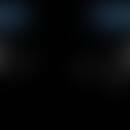DefinitionThis section has been translated automatically.
Swelling agents belong to the group of water-soluble dietary fibres (polysaccharides e.g. cellulose, pectins etc.). Swelling agents are found naturally in foods such as apples, quinces, cereals and vegetables. Basically, all swelling agents are defined as substances which, due to their high water absorption capacity, increase their volume significantly (often several times their initial volume) (swelling strongly). The swelling index (QZ), also called swelling factor, indicates the volume that 1.0g of a drug takes up after swelling (after 4h) in a water-containing liquid.
General informationThis section has been translated automatically.
Cosmetics: Swelling agents are used in cosmetic formulations. They reduce the bulk density of medical preparations.
Medicine: In the intestines, swelling agents bind water. If e.g. in case of diarrhoea liquid is insufficiently absorbed, diarrhoea can be prevented by the supply of swelling agents.
If water is absorbed at the same time as swelling agents, the swelling leads to an emptying stimulus on the intestinal wall. Swelling agents are used in medicine as laxatives, among other things.
In food technology, swelling agents are used as thickeners and gelling agents. They are also added to industrially produced food and increase the volume of food by swelling.



